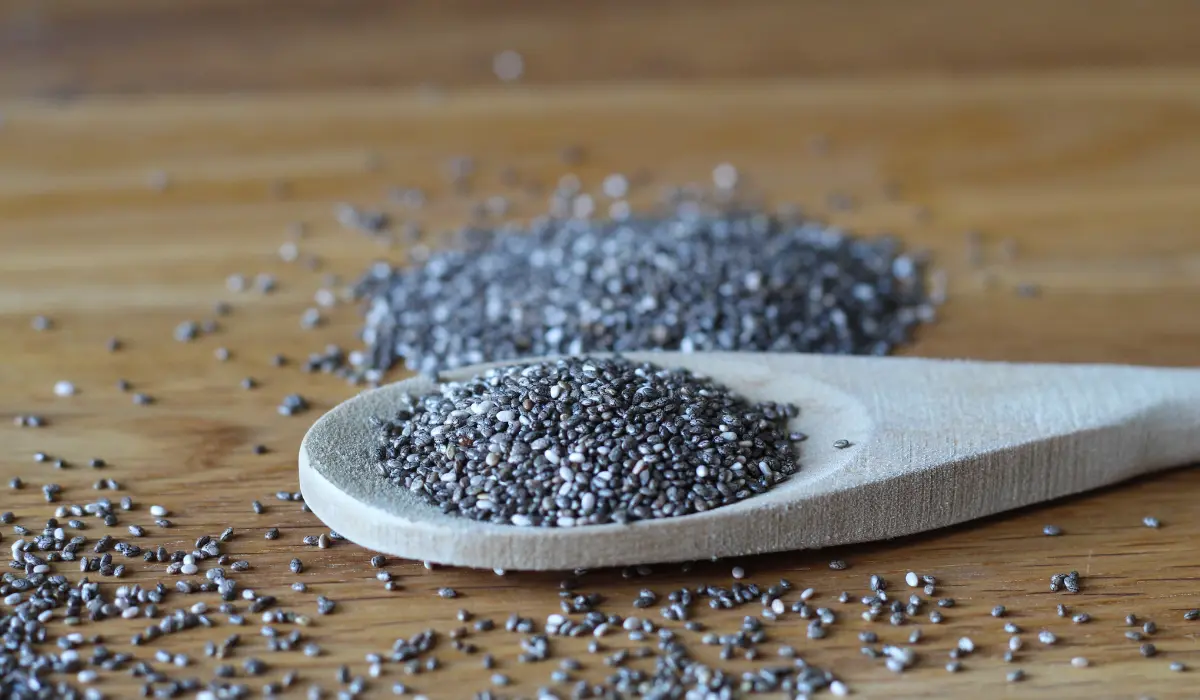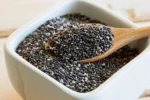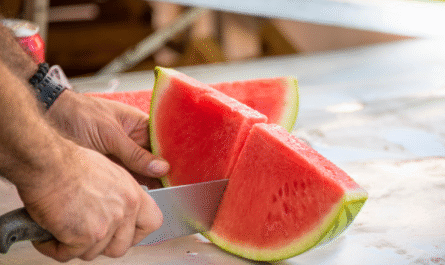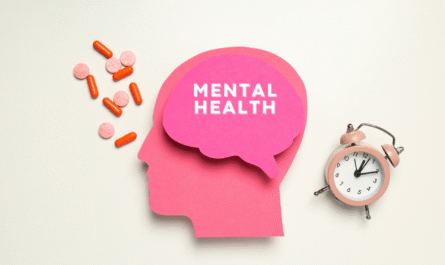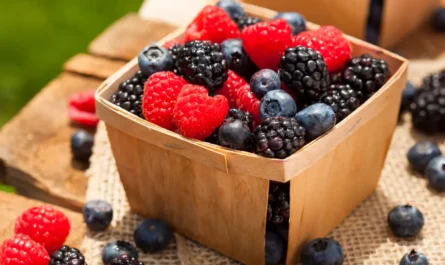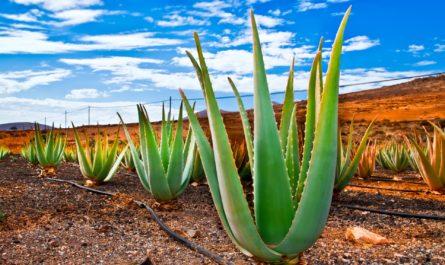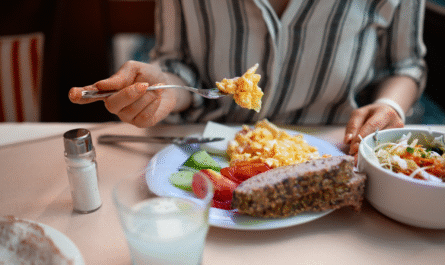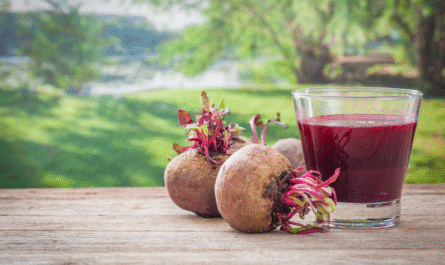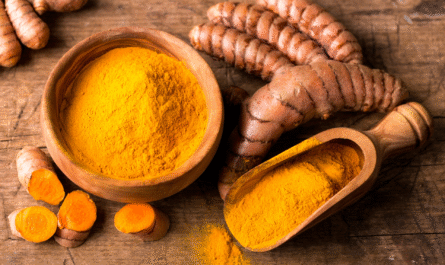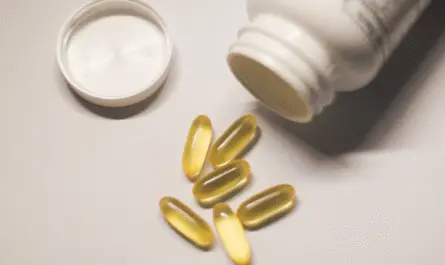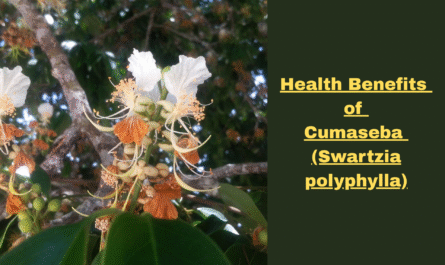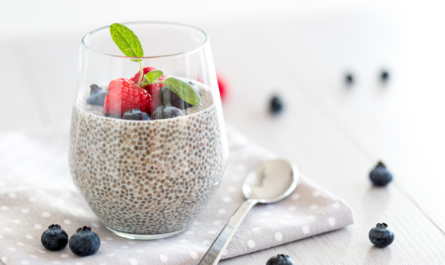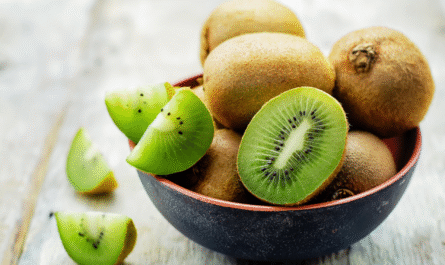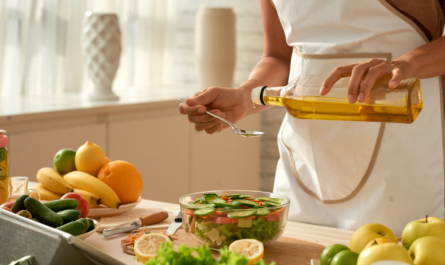Over the years, I’ve seen chia seeds go from a niche health food to a kitchen staple. They’re packed with fiber, omega-3 fatty acids, protein, and minerals, making them a go-to ingredient for smoothies, puddings, and even baked goods.
Their ability to form a gel-like texture when soaked makes them unique, and they offer plenty of benefits, from helping with digestion to supporting heart health.
But as much as I appreciate chia seeds for their nutritional value, I also know that “healthy” doesn’t automatically mean “safe for everyone.” Like any powerful food, chia seeds can interact with medications in ways that are often overlooked.
Some of these interactions may be mild, but others can be serious, especially if you’re already managing a chronic condition with prescription drugs.
That’s why I want to break down five categories of medications that don’t mix well with chia seeds, so you can make informed decisions for your health.
1. Chia Seeds and Blood Pressure Medications
Chia seeds naturally help lower blood pressure through a few different mechanisms. They contain minerals like magnesium and potassium, which support vascular relaxation, and they also mimic the effects of ACE inhibitors by preventing the conversion of angiotensin I to angiotensin II, a compound that tightens blood vessels. This natural blood pressure–lowering effect can be wonderful for people with borderline hypertension who aren’t on medication.
However, if you’re already taking antihypertensive medications, whether ACE inhibitors, beta-blockers, or calcium channel blockers, adding large amounts of chia seeds into your diet could push your blood pressure too low.
Hypotension can cause dizziness, fainting, fatigue, and in severe cases, organ damage due to poor circulation. This isn’t a common outcome from one chia pudding, but it’s a real risk if you’re regularly consuming chia while medicated.
The key here is balance. If you want to include chia seeds in your diet while on blood pressure medications, you’ll need to monitor your readings closely and keep your doctor in the loop. Sometimes, a small dietary change can alter the dosage requirements of your medication, and it’s safer to adjust under medical supervision than to guess.
2. Chia Seeds and Diabetes Medications
One of the most praised benefits of chia seeds is their effect on blood sugar control. Thanks to their high soluble fiber content, chia seeds slow down the absorption of carbohydrates and create a more gradual rise in glucose levels after meals. For people with prediabetes or mild insulin resistance, this is a big win.
But if you’re already taking insulin or oral hypoglycemic medications such as metformin, sulfonylureas, or GLP-1 receptor agonists, adding chia into your diet can tip you into hypoglycemia.
Low blood sugar can cause sweating, shakiness, headaches, confusion, and even fainting. Over time, frequent hypoglycemia episodes can harm both your physical and cognitive health.
I always encourage patients with diabetes to view chia seeds as a complement, not a cure. If you’d like to use chia seeds for their blood sugar benefits, start with small portions and track your glucose response carefully. Having a nutritionist or doctor help you fine-tune the balance between diet and medication is the safest approach.
3. Chia Seeds and Cholesterol-Lowering Therapies
Another area where chia seeds shine is lipid management. Research shows they can reduce LDL cholesterol, lower triglycerides, and increase HDL cholesterol. That sounds like a dream for cardiovascular health, and it can be. But for those already on cholesterol-lowering medications like statins, fibrates, or niacin, the combination can sometimes lead to unintended consequences.
The problem is that your body still needs cholesterol to function properly. Cholesterol plays a role in hormone production, vitamin D synthesis, and cell membrane integrity.
If medication is already lowering cholesterol significantly, and chia adds an extra push, you might find yourself with excessively low lipid levels. This imbalance can cause fatigue, mood disturbances, or even contribute to neurological issues.
The solution isn’t to avoid chia altogether but to personalize your intake. Instead of daily large servings, consider rotating chia into your diet occasionally and discussing your lipid panel results with your doctor. If your numbers dip too low, scaling back on chia or adjusting your medication dosage might be necessary.
4. Chia Seeds and Mineral Supplements
Chia seeds are rich in essential minerals, particularly calcium, magnesium, phosphorus, and potassium. These minerals are vital for bone health, nerve function, and muscle performance. For most people, eating chia seeds helps fill nutritional gaps and supports overall wellness.
However, if you’re taking mineral supplements, especially calcium or magnesium, you could end up consuming more than your body can handle. This is especially risky for individuals with reduced kidney function, as their bodies can’t clear excess minerals efficiently. Too much calcium or magnesium in the blood can lead to muscle cramps, fatigue, irregular heartbeat, or kidney stones.
What I’ve seen is that people often underestimate how much they’re getting from food when they’re also supplementing. If you’re in this situation, it’s worth having your mineral levels checked periodically through blood tests. That way, you can adjust either your supplement dosage or your chia intake to avoid overload.
5. Chia Seeds and Laxatives or Stool Softeners
One of the lesser-discussed benefits of chia seeds is their effect on digestion. Their fiber absorbs water and forms a gel that can ease constipation and promote regularity. For many people, this is a safe and natural way to improve gut health.
The complication arises when chia seeds are combined with stool softeners or laxatives. Together, they can overstimulate bowel movements, leading to diarrhea, dehydration, and electrolyte imbalances. Chronic diarrhea can be more than just inconvenient, it can also strain your kidneys and deplete vital minerals like potassium and sodium.
If you’re already taking a laxative, even something over-the-counter, it’s best to limit your chia intake or introduce it very gradually. Sometimes, chia alone can provide enough relief for mild constipation, reducing or even eliminating the need for medication. This is something to explore with your doctor rather than experimenting on your own.
Additional Consideration
Beyond these direct interactions, chia seeds can also interfere with the absorption of certain medications because of their gel-like properties. When chia seeds swell in your stomach, they can slow down or reduce how quickly medications are absorbed. This matters for drugs that need to be taken on an empty stomach or at specific intervals for maximum effectiveness.
For example, thyroid medications, some antibiotics, and osteoporosis drugs require precise absorption timing. If chia seeds are consumed too close to these medications, they might reduce their potency.
That could mean your thyroid function doesn’t stabilize, your infection doesn’t resolve as quickly, or your bones don’t get the support they need.
The safest approach is to separate chia consumption from medication by at least two hours, before or after. This small adjustment helps ensure you’re reaping the benefits of both your food and your prescriptions without compromising either.
Final Thought
Chia seeds are one of nature’s superfoods, and I truly value them as part of a balanced diet. But like all powerful tools, they need to be used wisely. When combined with certain medications, they can either intensify or interfere with the intended effects, and that can put your health at risk.
If you’re on long-term medication, the best step you can take is simple: talk to your healthcare provider before making chia seeds a daily staple. This isn’t about fear, it’s about being proactive and tailoring your diet to your unique needs.
Health is rarely about absolutes. It’s about balance, awareness, and making adjustments that keep you safe while still enjoying the foods that fuel you. With the right precautions, chia seeds can absolutely remain a valuable ally in your diet.
FAQs
For most people, two tablespoons a day is reasonable. But if you’re on medication, even that amount could affect you differently. Always monitor your response. Cooking doesn’t change their mineral or fiber content significantly, so the interaction risk remains. The bigger factor is timing, not form. Ground chia is absorbed more quickly, but it still forms a gel in the stomach. So the interaction risk with medication absorption is similar. Ask about possible additive effects, safe daily limits, and whether you need blood work to monitor mineral or glucose levels. How much chia is considered “too much” when on daily medication?
Are chia seeds safer in cooked foods versus raw or soaked forms when taking medications?
Do ground chia seeds interact differently with medications than whole seeds?
What should I ask my doctor before adding chia seeds to my diet if I’m on long-term medication?

